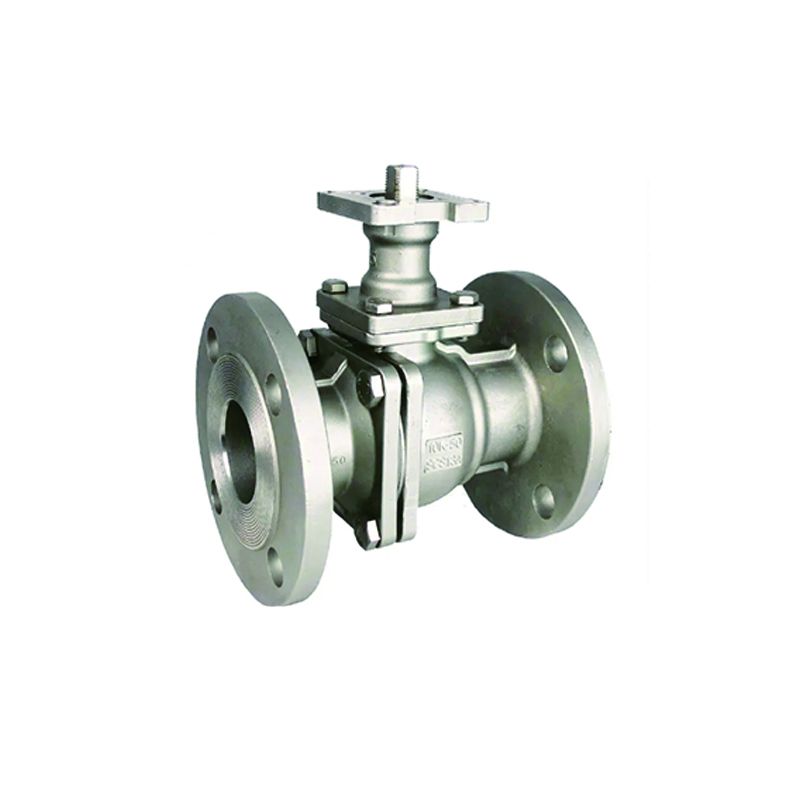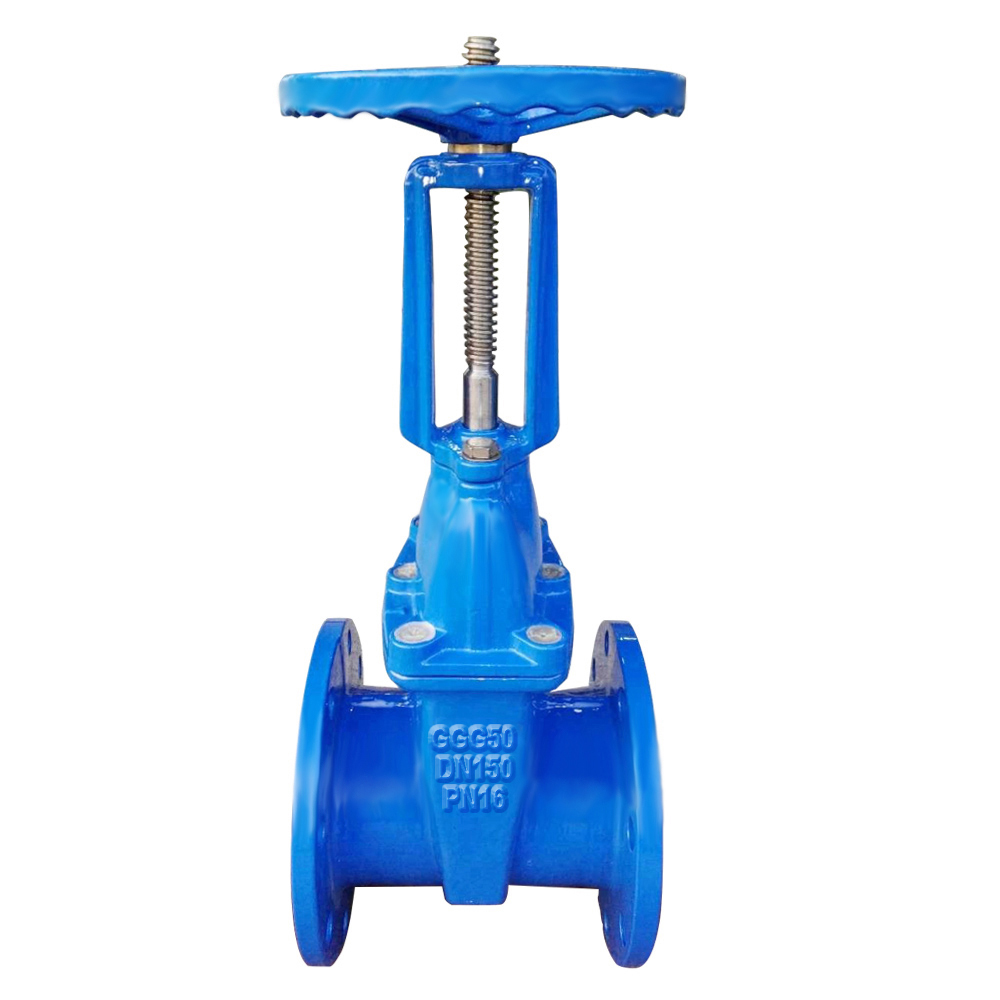ANSI Class 150-600 Floating Ball Valve
- Body: A-216 WCB (also available in A351 CF8, CF8M, CF3M)
- Gasket: PTFE
- Bolt: A193 B7 (also available in A193 B8, B8M)
- Seat: PTFE
- Ball: A105 + Hcr/ENP (also available in A351 CF8, CF8M, CF3M)
- Flange: A-216 WCB (also available in A351 CF8, CF8M, CF3M)
- Nut: A194 2H (also available in A194 8M)
- Packing: A-182 F6A
- Spring: INCONEL750
- Stem: A-182 F6A (also available in A-182, F304, SS304)
- Washer: PTFE
- Bearing: Graphite: PTFE
- Gland: A-216 WCB (also available in A351 CF8, CF8M; CF3, CF3M)
- Gland Flange: A-216 WCB (also available in A351 CF8, CF8M, CF3M)
- Lock Plate: A-216 WCB
- Handle: A-216 WCB
- Segment: Steel 37
• ANSI Class 150-600 Floating Ball Valve
• Designed and manufactured to meet ANSI B16.34 standards
• Suitable for applications with operating pressures ranging from Class 150 to Class 600
• Floating ball design allows the ball to move freely within the valve, ensuring tight sealing and reduced torque requirements
• Full bore or reduced bore options available, depending on specific application requirements
• Quarter-turn operation enables quick and easy valve operation
• Position locking device ensures the valve remains in the desired position once set
• Fire-safe design, providing increased safety in the event of a fire
• Anti-static design prevents static electricity buildup and discharge
• Blow-out proof stem design prevents the valve stem from being blown out under high pressure conditions
• Flange connections conform to ANSI B16.5 standards, ensuring compatibility with other equipment
• Face to face dimensions comply with ANSI B16.10 standards, providing standardized installation lengths
• Tested according to API 598 and API 6D requirements, ensuring reliable performance and tight shut-off
• Suitable for use in various media, including natural gas, steam, oil, chemicals, cold water, and urban applications
| Attribute | Details |
|---|---|
| ANSI Class | 150-600 |
| Valve Type | Floating Ball |
| Application | General purpose |
| Pressure Rating | ANSI Class 150-600 |
| End Connection | Flanged or threaded |
| Body Material | Carbon steel, stainless steel, or alloy steel |
| Ball Material | Stainless steel, brass, or other alloys |
| Seat Material | PTFE, RPTFE, or other resilient materials |
| Size Range | 1/2″ – 24″ (DN15 – DN600) |
| Temperature Range | -20°F to 500°F (-29°C to 260°C) |
| Design Standard | API 608, API 6D, ASME B16.34 |
| Leakage Class | ANSI Class VI (bubble-tight) |
| Actuation Options | Manual, electric, pneumatic |
| Features | Fire-safe design, anti-static device, blowout-proof stem, locking device |
| Certifications | API 607, ISO 9001, PED, ATEX, SIL 3 |
| Suitable Applications | Oil and gas, chemical, petrochemical, water, power plants |
What is a Floating Ball Valve?
A floating ball valve is a versatile type of valve widely used in various industries due to its simple yet effective design. The core of the valve consists of a spherical ball, known as the “floating ball,” which controls the flow of fluid through the valve. When the valve is in the closed position, the ball is pressed against the seat, creating a tight seal that prevents leakage even in high-pressure applications.
How Does a Floating Ball Valve Work?
The working principle of a floating ball valve is straightforward. When the valve handle is turned 90 degrees, the ball inside the valve rotates, either opening or closing the flow path. In the open position, the fluid can flow freely through the valve, while in the closed position, the ball blocks the flow, ensuring a secure shutoff. The floating ball design is particularly effective in creating a tight seal, making it ideal for applications where leakage prevention is critical.
Applications of Floating Ball Valves
Floating ball valves are commonly used in industries such as oil and gas, petrochemical, water treatment, and more. Their ability to handle high-pressure environments and provide reliable sealing makes them suitable for a wide range of applications. Whether in upstream or downstream operations, these valves play a crucial role in controlling the flow of various fluids, including gases, liquids, and slurries.
Materials and Design
The materials used in the construction of floating ball valves are critical to their performance and durability. Common materials include carbon steel, such as ASTM A216 Grade WCB, known for its strength and resistance to wear. The valve’s body is typically cast from high-quality materials to withstand the demanding conditions of industrial applications. Additionally, the valve’s seat, which contacts the ball, is designed to create a tight seal, even under high pressure.
Floating Ball Valve vs. Trunnion Mounted Ball Valve
One of the key differences between floating ball valves and trunnion mounted ball valves is the method by which the ball is supported. In a floating ball valve, the ball is not fixed and relies on the pressure of the fluid to press against the downstream seat, creating a seal. This design is simpler and more cost-effective, making it suitable for a wide range of applications.
On the other hand, trunnion mounted ball valves feature a ball that is fixed in place by bearings, which means the sealing mechanism is independent of the fluid pressure. This design is typically used in high-pressure applications where the fluid pressure alone might not be sufficient to create a seal.
Advantages of Floating Ball Valves
- Quarter-Turn Operation: The simple quarter-turn operation of floating ball valves makes them easy to use and highly efficient in controlling fluid flow.
- Tight Sealing: The floating ball design ensures a tight seal, minimizing the risk of leakage even in high-pressure applications.
- Versatility: These valves are suitable for a wide range of applications, from oil and gas to water treatment, thanks to their robust construction and reliable performance.
- Cost-Effective: Compared to other valve designs, floating ball valves offer a cost-effective solution without compromising on performance.
Why Choose Jhy Group as Your Floating Ball Valve Supplier?
Jhy Group is a leading supplier of high-quality floating ball valves, offering a wide range of products to meet the diverse needs of our clients. With years of experience in the industry, we understand the importance of reliability and performance in valve applications. Our floating ball valves are designed to meet stringent industry standards, ensuring long-lasting durability and optimal performance.
Explore our comprehensive product catalog and discover the perfect floating ball valve for your needs. Visit our website to browse the entire product line and find out why Jhy Group is the trusted choice for industrial valve solutions.





















































